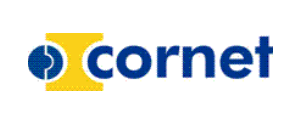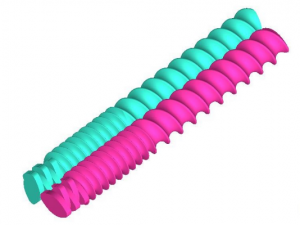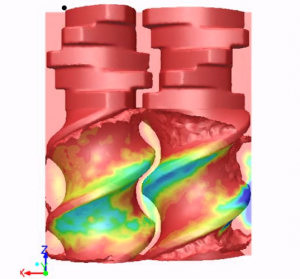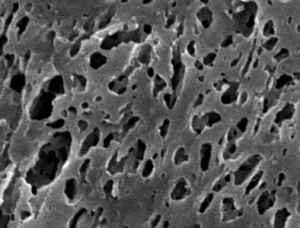Application of Computational Fluid Dynamics for co-rotating Twin-Screw-Extruder to achieve optimized thermoplastic materials
 The aim of the project is usage of Computational Fluid Dynamics combined with experimental studies for the development of innovative thermoplastic materials and the optimization of the compounding process by using an intermeshing co-rotating twin-screw-extruder
The aim of the project is usage of Computational Fluid Dynamics combined with experimental studies for the development of innovative thermoplastic materials and the optimization of the compounding process by using an intermeshing co-rotating twin-screw-extruder
With increasing of the requirements of the thermoplastic materials, the number of experiments increases, too and with it the cost of development. Through the selective usage of CFD it is possible to understand more detailed what happens in the processing unit of a twin-screw-extruder. This deeper knowledge of the process can be used to optimize the screw design and the process in detail and help to reduce cost intensive experiments during the material development cycle. Furthermore it can be used to optimize the process, e.g. to get low-emission-plastics with a reduced content of volatiles or for the increasing of the throughput (increase of the economic impact). The prediction of wear of the parts of the processing unit (screw, barrel) is also possible. So the application of CFD for twin-screw-extruders can reduce cost, leads to a more efficient compounding and material development and increase the durability of the processing unit of the extruder.
Before CFD can be used in the described way, experimental determination of the visco-elastic and rheological behaviour of different polymeric materials, the modelling of these behaviours and the implementation of the models into the CFD-Code paired with an extensive experimental validation of the simulation results have to carry out. This will be one of the main parts of the project. The developed material will be a cross-linked thermoplastic elastomer (TPE-V) without softener which is processable for the SMEs. These new class of TPE-V can be used for medical application (substitute of soft PVC) automotive application, two component injection moulding, toys (without softener) etc. Up to now there is no route for the processing of such materials available.
Recent activity:
 |
 |
 |
| Geometry of the compounder screws, dynamic mesh simulation and new material (crosslinked PP/POE). | ||
Partners: Deutsches Kunststoff Institut (DKI), TU-Darmstadt, Germany
Duration: 2010 – 2012